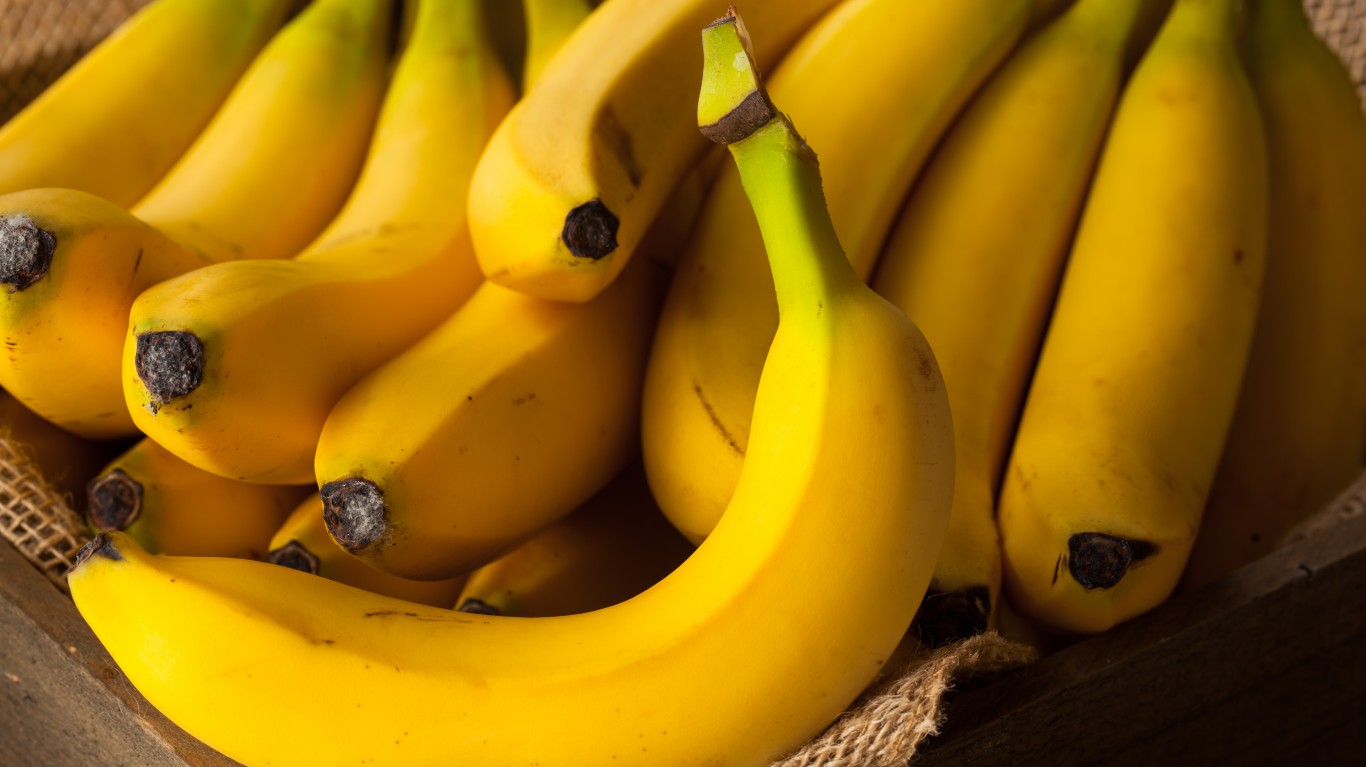Retail
After an Earnings Snub, Lessons of Berkshire Hathaway and Kroger for Albertsons

Published:
Last Updated:

Grocery stores have proven to be more than just safe during the COVID-19 pandemic and in the weeks before the pandemic was named. Even with foot traffic in retail down, the public has much less access to restaurants, and there are only so many days in a row that a human body can live off drive-thru and restaurant deliveries. Grocery stores are definitely in the essential business category now.
One company that has seen an interesting twist of fate since coming public again is Albertsons Companies Inc. (NYSE: ACI). Its shares were hit hard on Monday due to the post-earnings reaction, but this is one of those “sell the news” events that may be too much considering that the company was upbeat about its earnings. Albertsons posted earnings of $1.35 per share rather than the $1.32 per share expected, but Albertsons said its digital sales were up a sharp 276% and that drove same-store sales up over 26%.
An issue weighing on the stock is the $615 million in pandemic-related costs, and that included an additional $275 million in enhanced pay for frontline workers, as well as $53 million for hunger relief in its communities. There were some store closures, and fuel sales have been lower during the times that the public has been shut-in and with unemployment so high. Another issue was that Albertsons offered no guidance.
The real issue to consider here is that the bumps higher in sales during the pandemic are being deemed somewhat as aberrations. After all, the sales would not be up this much without the pandemic shifting eating habits back to in-home. The other issue is that when a vaccine or treatment becomes more widespread, and as the public migrates back to its old ways or something similar, there are going to be obvious sales contractions as the public will be more than eager to begin its love affair of eating out.
Albertsons recently had an $800 million initial public offering, as private equity owner Cerberus began the process of monetizing its ownership.
Kroger Co. (NYSE: KR) is the top direct rival for Albertsons, although the geographies do not have a 100% overlap. Kroger previously said, around the time of the Albertsons IPO, that the much higher demand for stockpiling of essential goods that had been seen as the coronavirus was first spreading had started to fade. The issue there is that the economies were opening back up, rather than seeing some throttling back as has been seen in some states during recent weeks.
What makes Albertsons different post-IPO from Kroger is that Albertsons had a larger relative debt (close to $8.5 billion) since its private equity transaction from years earlier. The good news is that Albertsons saw a decrease in its interest expense ($180.6 million, versus $225.2 million a year earlier) due to lower average outstanding borrowings and lower interest rates.
Albertsons was valued at about $9.3 billion at the $16 per share IPO price, and that was a downsized deal from the initial $18 to $20 per share range. While Albertsons tried to rally initially, the shares were last seen down almost 6% at $15.20 on Monday.
Note that Albertsons has an amalgamated group of grocery store brands. It operates more than 2,250 stores the Albertsons, Safeway, Vons, Jewel-Osco, Shaw’s, Acme, Tom Thumb, Randalls, United Supermarkets, Market Street, Pavilions, Star Market, Carrs banners, as well as one called Haggen. Similar to Kroger, it also has many in-store pharmacies (1,726) and in-store branded coffee shops (1,290). Albertsons also has 402 fuel centers that are adjacent to its stores. Rebranding stores can be costly, but operating this many brands is also more costly than running a unified brand.
Where both Kroger and Albertsons have opportunities to expand margins and to take market share from brands is in the continued push to their own private-label brands. Roughly 25% of Albertsons sales were from private label products last year, and the company believes that can grow to 30% in the coming years.
The grocery chain’s latest fiscal year (Feb. 29, 2020) saw roughly $62.5 billion in sales, roughly half of Kroger’s (Jan. 31, 2020) $122.3 billion in sales.
Kroger stock traded up about 0.6% at $34.90 on Monday, while Albertsons was lower. Kroger is also a relatively new holding of Warren Buffett’s Berkshire Hathaway Inc. (NYSE: BRK-A). That investment stake did not garner as much attention as it could have, and it’s possible that Buffett might even want to consider owning Kroger outright, or at least have a much larger stake than the 2.43% (18.94 million shares) it currently owns.
For that matter, perhaps Buffett’s portfolio managers should consider taking a stake in Albertsons. They could probably call up Cerberus and get the shares in an off-market transaction that would be beneficial to both parties.
After two decades of reviewing financial products I haven’t seen anything like this. Credit card companies are at war, handing out free rewards and benefits to win the best customers.
A good cash back card can be worth thousands of dollars a year in free money, not to mention other perks like travel, insurance, and access to fancy lounges.
Our top pick today pays up to 5% cash back, a $200 bonus on top, and $0 annual fee. Click here to apply before they stop offering rewards this generous.
Flywheel Publishing has partnered with CardRatings for our coverage of credit card products. Flywheel Publishing and CardRatings may receive a commission from card issuers.
Thank you for reading! Have some feedback for us?
Contact the 24/7 Wall St. editorial team.